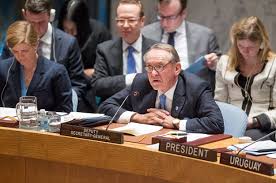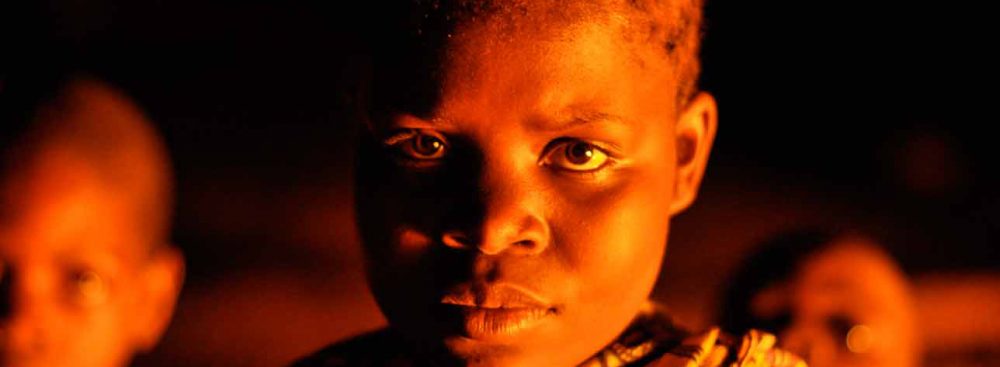
Last week I watched the 18th “Open Debate on Protection of Civilians” in armed conflict at the UN Security council. This event takes place once a year and represents an important forum for member states, i.e. the world’s governments, to discuss the issue and position themselves. As this month’s president of the Security Council, Uruguay chaired the debate, and UN Deputy Secretary General Jan Eliasson, the ICRC’s Vice President Christine Beerli and Oxfam Senior Humanitarian Policy Advisor Eveline Rooijmans provided briefings. Subsequently, many member states’ representatives, including Iran, Montenegro and the Holy See, gave their respective statements. As usual, these statements expressed great concern for civilian victims of today’s armed conflicts, but there also seemed to be a sense that “civilians in conflict are in greater risk now than at any time in the UN’s history” (New Zealand), which is reflected by the record high of 60 million displaced people. Statements also referred to this year’s worrying trends. Virtually every speaker condemned the attacks on hospitals in Afghanistan and Yemen, the use of starvation as a weapon of war in Madaya and 14 other areas in Syria, the increasing attacks against journalists and the use of explosive weapons in densely populated areas.
Speakers were also in agreement concerning the solutions to civilian’s plight in armed conflict, again, referring to the above mentioned documents. Accordingly, they stressed the need for political solutions, specifically for dedicating more attention to preventing and meditating violent conflict. Burundi was often mentioned as a case in point, as the Security Council mission left for the country the next day – quite late but hopefully able to avoid worse. Speakers agreed that compliance to International Humanitarian Law needs to be ensured through applying and reinforcing the existing accountability tools of (international) criminal justice. Statements also referred to a number of operational issues for UN peacekeeping, such as the need for realistic and clear mandates, more engagement with local communities and regional organizations, well-equipped and quickly deployable peacekeepers, and a commitment to zero tolerance for sexual abuse and exploitation by UN staff. Speakers expressed hope that the upcoming World Humanitarian Summit in Istanbul (May 23/24) would lead to fruitful discussions.
As someone who is interested in practice-theory, I am also trying to make sense of the event on the basis of what actually happened. First, as Jan Eliasson remarked, the high number of speakers suggests that the topic is important for many of the world’s governments. Actually, there were so many registered speakers that the chair urged orators to keep their statements brief and provide longer versions online. Second, this was not a “debate” in the classical sense. Rather statements were given about the same topic but without referring to each other. The Uruguayan delegation had provided a briefing note beforehand, which obviously guided the statements alongside three other documents: the Secretary General’s report on the protection of civilians, the High-Level Independent Panel on Peace Operations (HIPPO) report and the SG’s report on the implementation of its recommendations. Consequently, statements mirrored each other. What was more interesting and differentiated the statements from each other was when speakers took the opportunity to connect PoC to their country’s history and interests. For example, Rwanda focused on the FDLR, Israel mentioned that Hezbollah was responsible for much of the violence in Syria, China stressed the neutrality and impartiality of UN peacekeeping, India talked about its experience in PoC since ONUC, Ukraine described Russian aggression and South Africa underlined the success of the FIB, etc. Third, speakers obviously adhered to a set of shared norms, spending a good portion of their limited time to thank everyone and subsequently acknowledge previously stated facts and generally agreed-upon points of reference. Finally, the debate was a bit lengthy and repetitive. Some speakers made more relevant connections or, like Samantha Powers, depicted situations skilfully, but you were getting the gist of it after a couple statements. I must be one of the only people that followed it from 10 a.m. to 7 p.m. and quite frankly that wasn’t necessary. Many of the diplomats just came in for their statement and even the chair rotated several times.
It can be concluded that the “debate” did not seem to be about rethinking PoC or exchanging information, but should be seen more as a political process where member states expressed their commitment to the protection of civilians and broadly agreed to an agenda. While falling short of committing to tangible steps, the strong condemnation of the practice of starvation, for instance, will increase the pressure on Assad. Nevertheless, it should be taken with a grain of salt when many of the member states’ representatives ended by pointing to the forthcoming Humanitarian Summit in Istanbul (May 23/24) as “an excellent opportunity to address the issue in a more in depth and comprehensive manner”.
